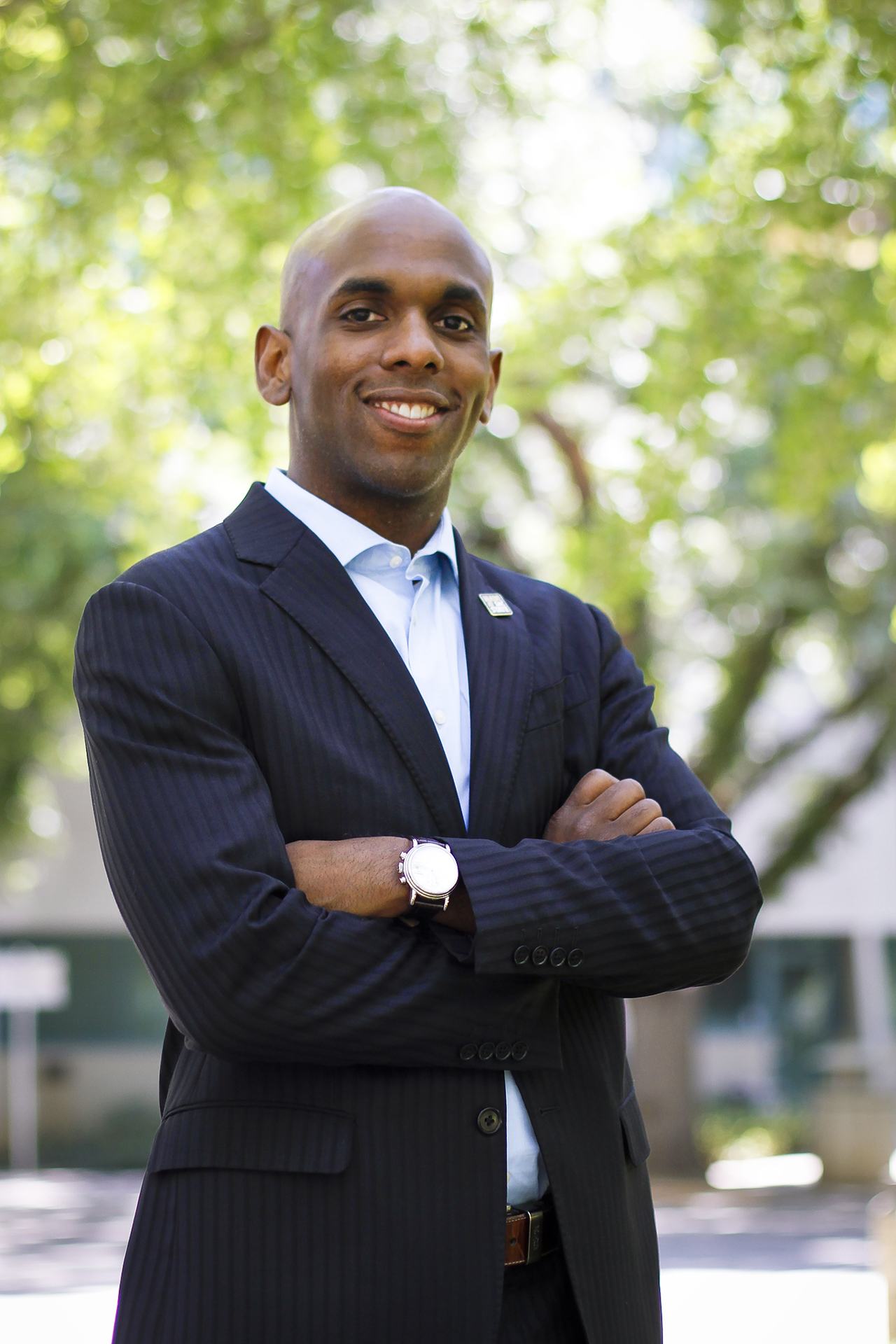Story Content
Presidential Leadership Scholar continues crusade for clean energy
August 19, 2016
 Can capitalism help save the planet? Proud Sacramento State alumnus Brandon Kline thinks it can.
Can capitalism help save the planet? Proud Sacramento State alumnus Brandon Kline thinks it can.
An energy law fellow at the Green Energy Institute at Lewis & Clark University in Portland, Ore., Kline has dedicated his career to the pursuit of clean energy. And while his master’s thesis is on the role that capital markets play in addressing climate change, that barely scratches the surface of his efforts this past year.
Since 2015, Kline (’05, Government) has graduated from law school, earned his master’s in energy law, and was one of just 61 experts selected for the Presidential Leadership Scholars (PLS) program – one of the nation’s most exclusive and groundbreaking think tanks – all with the ultimate aim of answering America’s most pressing energy questions through public policy.
“This is not something where we should be looking at climate change as a polarizing issue,” Kline says. “Because we’re not really talking about climate change; we’re talking more about securing this nation’s energy sources and looking at what’s the smartest way for us to be able to produce energy.”
In the midst of it all, Kline and his wife, Rosilynn, had a daughter earlier this year. He plans to spend some much-deserved family time before launching his PLS project in the fall.
Now in its third year, PLS is a leadership development program that brings together diverse leaders from all over the country to address some of the nation’s most persistent issues. Each participant proposes his or her own project on a specific issue. They draw on resources from four presidential centers and work directly with former presidents, their senior staff members, and top industry leaders to find solutions that transcend party lines.
Kline was selected from more than 900 applicants for his project on energy security.
His project tackles myriad questions: How can we effectively get energy from areas producing the most renewable resources to the rest of the country? How can federal leadership ensure that states use more renewable energy? How can we create a wellspring of information to inform comprehensive energy policies that don’t change with each new presidential administration? From solar companies to leaders in the coal industry, interests from across the energy spectrum are a part of the discussion.
“The way I’m approaching it is not having only the clean guys at the table; you need to have everyone at the table,” he says.
The project is the latest incarnation of a personal campaign that started over a decade ago at Sacramento State.
Originally from San Luis Obispo, Kline moved to Sacramento for the opportunity to make a meaningful impact in the world through public policy. He enrolled at Sac State and went absolutely gangbusters, taking advantage of as many opportunities as possible to get inside the State Capitol: He interned at the California Energy Commission, which Kline says “had a huge effect on (his) worldview” and prompted him to study energy law; he interned at the California Business Roundtable; he was a member of the University’s award-winning Capital Fellows Programs.
“I had a premier education here; I got everything I needed in Sacramento,” Kline says. “This is where everything’s happening. If you want to make a difference in the world, then you have to go where the people are, where the policymakers are, where the leaders are. So that’s why for me, I wanted to get out of a small town and make a difference.”
Making a difference on the biggest scale is exactly what Kline intends to do. His thesis, for example, proposes reforms to fair disclosure requirements so that public companies would have to divulge the impacts of climate change and legislation on their bottom lines. If this kind of information had to be public, Kline says, investors would naturally get behind cleaner, more profitable companies like Tesla that are ahead of the curve. In that sense, capital markets can actually have a real, tangible impact on climate change.
It’s that kind of high-minded thinking, coupled with an insatiable drive to better the world for generations to come, that has Kline moving faster than ever down a path toward a greener future – and he’s trying to bring the rest of us along.
“We don’t need blue electrons or red electrons; we need electricity throughout this country to be clean. That’s the only way you’re to get energy security here,” he says.“If we’re going to have a comprehensive solution that’s going to impact every corner of this country, we have to be able to have everyone buy in.”